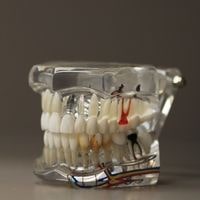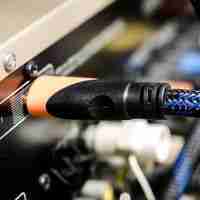Why Do Drain Flies Keep Coming Back
Why do drain flies keep coming back? What is the most obnoxious household pest you can find? Well, it’s got to be drain flies. These tiny flying insects are terrible because they come out of nowhere and fly around your house, especially over your dishes or food on the table.
But does anyone know how these minor annoying bugs get into our homes each day in the first place? It will help if you read this guide to learn why drain flies appear in your home and where they come from.
Then, you will learn specific strategies that will help you eradicate those bothersome flies and prevent them from coming back.
Not only that, but you will also find out ways to keep drain flies away for good! This information is vital if you don’t want any more of these nasty bugs infesting your home.
Why Do Drain Flies Keep Coming Back

Drain flies thrive in stagnant water, particularly from not flushing the toilet after use.
If you have any problems with them, flush your toilet, which may seem like a tedious task for small bugs but will eradicate most of them.
Organic substances can build up within drains easily and will keep drain flies visiting your bathroom once again in a short time.
1. Keep Your Yard Clean
A clean outdoor area of your home, which includes your yard and garden, is the key to eliminating bugs. Most yards have foliage, rotting wood pieces, and decaying mulch beds that attract bugs.
To make matters worse, many people even overwater their yards and gardens. Get rid of all the debris in your yard.
Ensure that all the pipes and drains in your yard are inspected for any cracks or leaks and repaired or replaced if necessary. Check to see if you have these typical signs of moisture around your foundation:
- Water pooling, water stains on walls.
- Warped wood floors or molding.
- Yellowed paint due to high humidity.
While bugs usually don’t like ultra-hot environments, they prefer humidity, so be sure to keep everything as dry as possible but not dusty!
If you use mulch, remember it should be decorative, not practical, because otherwise, it gets dirty and wet – both conditions insects adore.
2. Compost piles should be kept free of bugs
Composting is environmentally friendly and good for the Earth, so every homeowner should try to do it.
However, Composting involves decaying organic matter, and bugs like roaches, worms, and drain flies are attracted to it as they lay eggs or feed on decaying organic matter.
You can use an insecticide spray on the compost piles at least twice a week to avoid this. You should also ensure that the compost pile is surrounded by ant and termite granules (but never nematodes).
Ants distract other bugs from making a home in the compost pile. Termites will eat away at both ends of the compost pile: from the top end, where dry leaves and soil are thrown in, and from below.
Where microbes work so hard to help break down all that organic matter into rich compost. But avoid using nematodes because once inside your compost piles.
They will start killing off vital insects, bacteria, fungi, and other micro-life that you need for breaking down your rotting food scraps.
3. Prevent waterlogging by filling up potholes
Potholes in the roads and driveways often lead to standing rainwater overgrown with algae or full of mosquito eggs.
It constitutes a good breeding ground for mosquitoes and drains flies, passing on nasty diseases. If there’s stagnant water in your yard, add some kerosene to it before filling it with mud or sand, which will get rid of weeds and mosquitoes.
But, of course, the best way to make sure you don’t come into contact with any unwanted insects is by using shelters or bug zappers while enjoying the outdoors.
4. Maintain a Clean Trash Bin
Individuals must practice good health and sanitation habits, precisely when eliminating waste from their homes.
For example, wash your hands after going to the bathroom because you never know what bacteria you might have come into contact with if you did not wash up.
Be sure to get rid of any plastic bags or plastic containers in which food was contained because flies tend to feed off leftover leftovers and other garbage.
Remember, these insects can be harmful, whether alive or dead, so do not stay dirty! Trash bins need to be disinfected often so that flies, ants, roaches, and other undesirable pests do not infest them.
Do Drain Flies Take A Long Time To Get Rid Of?
To get rid of drain flies in your house, you’ll need at least a week of repeated treatments. These pests lay many eggs, and given their ability to multiply rapidly if left unchecked, one or two treatments might not be enough!
In addition to that, you’ll need to use drain cleaners for a thorough cleaning, which also needs multiple cleanings.
However, the best way to eliminate drain flies is by using our tips on how to make a fruit fly trap and trapping them by making good use of the duct tape method and checking out this info graphic on drain flies.
Where Do Drain Flies Come From?
Drain flies aren’t the only source of drain flies. There are many sources of drain flies from outside your home.
Flies like wastewater and water are monitored, especially during rainy seasons when the household garbage, etc. is collected for transportation by vehicle to landfills.
So it’s a pretty good idea to schedule or plan these collection times around the sunrise or sunset hours because if not could create an issue due to being vulnerable to be breeding grounds for ACOs!
So as you deal with potential sources of drain flies outside your home, such as gutters, sewers, and storm drains in areas that have had heavy rainfall over the weekend.
They come into contact with no-target aquatic life forms very quickly, making them survivors when it comes down to breeding, so using a broad barracuda or another professional organization will help you prevent them in the long run.
Conclusion
Why do drain flies keep coming back. This article answers why you have drain flies in your home. It will also tell you how to get rid of them and keep them away for good! Furthermore, this post clears up a common misconception: the idea that drains are the only source of drain flies within your home. This is not true, as we can see from the facts below.
Related Guides





